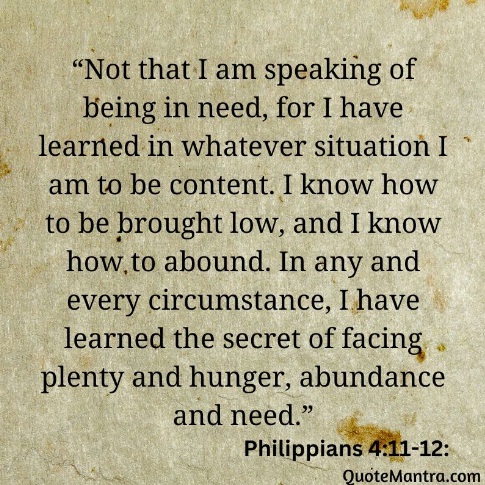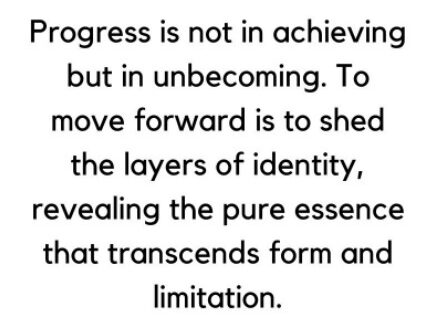
Proverbs and Verses on Desire, Lust, and Greed
As humans, we often find ourselves grappling with desires for more – more wealth, more possessions, and more success. However, there’s an ancient wisdom that cautions us against being consumed by these desires. In the following collection of 20 proverbs and verses, we’ll explore the age-old guidance that highlights the importance of steering clear of intense lust, insatiable desire, and insatiable greed. These wise words offer us valuable insights into living a balanced and contented life, reminding us that there is more to our existence than the relentless pursuit of material wealth and desires.
1. Proverbs 15:27: “Whoever is greedy for unjust gain troubles his own household, but he who hates bribes will live.”
Proverbs 15:27 teaches us that if someone is excessively greedy and seeks to gain wealth through dishonest or unfair methods, they not only harm themselves but also create problems for their own family. However, those who avoid taking bribes and choose to live with integrity will lead a better and more fulfilling life, free from the negative consequences of greed and dishonesty. In simple terms, it advises us to be honest and not pursue wealth at any cost, as this can have detrimental effects on our lives and our loved ones.
2. 1 Timothy 6:9: “But those who desire to be rich fall into temptation, into a snare, into many senseless and harmful desires that plunge people into ruin and destruction.”
This verse is telling us that if we want to become very rich, we might end up in trouble. It’s like walking into a trap or making foolish decisions. These desires for extreme wealth can lead us to do harmful things that can ruin our lives and bring about destruction. So, it’s a warning that being overly obsessed with getting rich can have serious negative consequences, and we should be cautious about it.
3. Proverbs 23:4-5: “Do not toil to acquire wealth; be discerning enough to desist. When your eyes light on it, it is gone, for suddenly it sprouts wings, flying like an eagle toward heaven.”
This saying advises us not to work too hard just to get rich. Instead, it suggests that we should be smart and stop ourselves from becoming too obsessed with money. It compares money to something that can disappear very quickly, almost like it has wings and can fly away in an instant. So, it’s a reminder that wealth can be fleeting, and it’s important to be wise about our pursuit of it.
4. Ecclesiastes 5:10: “He who loves money will not be satisfied with money, nor he who loves wealth with his income; this also is vanity.”
This verse tells us that if we love money and want more and more of it, we won’t ever feel truly content, no matter how much we have. It’s like a never-ending chase that doesn’t bring real happiness. In the end, it’s all like chasing something that doesn’t matter in the big picture of life. So, it’s advising us not to make money our main focus because it won’t bring lasting satisfaction.
5. Proverbs 28:20: “A faithful man will abound with blessings, but whoever hastens to be rich will not go unpunished.”
This saying tells us that if we’re patient, honest, and trustworthy, good things will come our way. We’ll have many blessings in life. But if we rush and try to get rich too quickly, without being honest and patient, there might be negative consequences or punishments. So, it’s a reminder to value trustworthiness and not to be in a hurry to become rich, as it can lead to problems.
6. Luke 12:15: “And he said to them, ‘Take care, and be on your guard against all covetousness, for one’s life does not consist in the abundance of his possessions.'”
In this verse, it’s like a person is saying, “Pay attention! Be careful not to want too many things or be too greedy.” The verse reminds us that our life isn’t defined by how many things we own or possess. It’s a message to focus on what truly matters in life, like our relationships, kindness, and happiness, instead of just wanting more and more stuff.
7. James 4:2-3: “You desire and do not have, so you murder. You covet and cannot obtain, so you fight and quarrel. You do not have, because you do not ask. You ask and do not receive, because you ask wrongly, to spend it on your passions.”
This verse tells us that when we strongly want something but don’t get it, we might become angry or even harm others (“murder” here means causing harm, not necessarily killing). When we crave things too much and can’t have them, it can lead to conflicts and fights.
But it also says that sometimes we don’t get what we want because we don’t ask for it or we ask for the wrong reasons. For instance, if we ask for something just to satisfy our selfish desires, we might not receive it. So, it’s a reminder to be mindful of our desires and how we seek to fulfill them, as it can impact our actions and the outcomes.
8. Proverbs 21:26: “All day long he craves and craves, but the righteous gives and does not hold back.”
This verse talks about two kinds of people.
First, there’s someone who always wants more and more. They keep desiring things all day long.
Then, there’s another person who is described as “righteous.” This person is generous and doesn’t hold back when giving to others. They’re not constantly craving more for themselves.
So, it’s teaching us that it’s better to be like the second person, who is generous and doesn’t always want more and more for themselves. Generosity and not constantly craving are seen as positive qualities in this verse.
9. Hebrews 13:5: “Keep your life free from love of money, and be content with what you have, for he has said, ‘I will never leave you nor forsake you.'”
This verse gives us two important pieces of advice: It tells us not to become too attached or obsessed with money. Instead, we should be content with what we already have. In other words, we shouldn’t always want more and more money. It reassures us by saying that we should remember that God is always with us and won’t abandon us. So, we don’t need to rely solely on money for our happiness and security. We can find comfort in our faith and the presence of God.
10. Proverbs 11:28: “Whoever trusts in his riches will fall, but the righteous will flourish like a green leaf.”
This verse compares two kinds of people:
The first person relies heavily on their wealth and believes it will always protect them. But this verse warns that depending solely on money can lead to problems or a downfall.
The second person is described as “righteous,” which means they live a good and moral life. This person is compared to a green leaf, which symbolizes growth and prosperity. So, being good and honest can lead to a successful and fulfilling life.
In simple terms, it advises us not to put all our trust in money because it might not always save us from difficulties. Instead, living a righteous and moral life can bring us success and growth.
11. 1 Corinthians 6:10: “Nor thieves, nor the greedy, nor drunkards, nor revilers, nor swindlers will inherit the kingdom of God.”
This verse lists several types of behaviors that won’t lead to inheriting the kingdom of God:
Thieves: People who steal from others.
The greedy: Those who always want more and more, especially when it comes to money or possessions.
Drunkards: Individuals who regularly get drunk or abuse alcohol.
Revilers: People who insult or verbally abuse others.
Swindlers: Those who deceive or cheat others for personal gain.
In simpler terms, this verse reminds us that engaging in these negative behaviors is not in line with God’s teachings and may prevent someone from entering God’s kingdom. It encourages us to lead a moral and upright life instead.
12. Proverbs 22:16: “Whoever oppresses the poor to increase his own wealth, or gives to the rich, will only come to poverty.”
This verse talks about two actions:Oppressing the poor to get richer:
It means treating people who have less money or resources unfairly or cruelly just to make yourself wealthier.
Giving to the rich: This refers to favoring or giving benefits to people who are already very wealthy.
The verse warns that if you engage in either of these actions, you’ll ultimately end up in poverty yourself. In simpler terms, it’s advising us not to be unfair or show favoritism based on wealth, as it can lead to negative consequences, including financial difficulties.
13. 1 John 2:16: “For all that is in the world—the desires of the flesh and the desires of the eyes and pride of life—is not from the Father but is from the world.”
This verse is saying that everything in the world, like wanting physical pleasures (desires of the flesh), wanting things we see (desires of the eyes), and feeling proud of ourselves (pride of life), doesn’t come from God but is part of worldly temptations.
In simpler terms, it reminds us that our desires for things that aren’t in line with what’s right and good come from the world and not from a spiritual or divine source.
14. Matthew 6:24: “No one can serve two masters, for either he will hate the one and love the other, or he will be devoted to the one and despise the other. You cannot serve God and money.”
This verse tells us that we can’t give our full loyalty and devotion to two different things or masters at the same time. It uses the example of serving both God and money.
It says that if we try to serve both, we’ll end up favoring one and disliking the other. In this case, it warns that we can’t be equally devoted to God and the pursuit of wealth.
So, it’s advising us to prioritize our values and not let the pursuit of money take over our devotion to what’s spiritually important, like our faith or values.
15. Proverbs 28:25: “A greedy man stirs up strife, but the one who trusts in the Lord will be enriched.”
This verse talks about two kinds of people:
A greedy person: Someone who always wants more and is never satisfied. This type of person often causes conflicts and problems (strife) because their desire for more can lead to disputes with others.
Someone who trusts in the Lord: This refers to a person who relies on their faith and believes in God. Such a person, instead of being greedy, finds contentment in their faith.
The verse tells us that the person who trusts in the Lord will be enriched, which means they will find fulfillment and abundance in their life. In contrast, the greedy person tends to create trouble and difficulties for themselves and others. So, it encourages us to trust in our faith rather than being overly greedy.
16. Colossians 3:5: “Put to death therefore what is earthly in you: sexual immorality, impurity, passion, evil desire, and covetousness, which is idolatry.”
This verse advises us to get rid of certain negative behaviors and attitudes that are tied to our earthly desires. These include things like:
Sexual immorality: Engaging in improper sexual actions or relationships.
Impurity: Thoughts or actions that are morally impure or indecent.
Passion: Uncontrolled and excessive desires or emotions.
Evil desire: Wanting things that are harmful or wrong.
Covetousness: Always wanting more and being envious of what others have.
The verse compares covetousness to idolatry, which means putting something above God. In simple terms, it’s advising us to let go of these negative behaviors and desires because they can lead us away from living a good and virtuous life.
17. Proverbs 11:24-25: “One gives freely, yet grows all the richer; another withholds what he should give, and only suffers want. Whoever brings blessing will be enriched, and one who waters will himself be watered.”
This verse talks about two types of people:
The generous person: This person freely gives to others, even when they don’t have to. Surprisingly, the more they give, the more they themselves have.
The selfish person: This person holds back and doesn’t share what they should give. As a result, they end up in need themselves.
The verse is saying that if you bring blessings to others by being generous, you’ll find yourself enriched in return. It’s like when you water a plant, you also get wet. So, it encourages us to be generous and kind because it can lead to blessings and abundance in our own lives.
18. Mark 7:21-22: “For from within, out of the heart of man, come evil thoughts, sexual immorality, theft, murder, adultery, coveting, wickedness, deceit, sensuality, envy, slander, pride, foolishness.”
This verse is telling us that the things we do wrong, like thinking bad thoughts, being sexually immoral, stealing, hurting others (even killing), cheating on our partners, wanting things too much (coveting), being wicked, lying, acting inappropriately (sensuality), feeling jealous, saying mean things about others (slander), thinking we’re better than everyone else (pride), and being foolish all come from inside us, from our hearts and minds.
In simple terms, it’s a reminder that our actions and choices are influenced by what’s inside us, and we should strive to have good thoughts and behaviors rather than negative ones.
19. Proverbs 1:19: “Such are the ways of everyone who is greedy for unjust gain; it takes away the life of its possessors.”
This verse is talking about people who are very greedy and want to get rich through unfair or dishonest means. It says that their actions and desires can lead to serious consequences, even to the point of harming or ruining their own lives.
In simple terms, it’s a warning that being overly greedy and pursuing wealth unfairly or dishonest way can have negative outcomes and can even destroy a person’s life.
20. Philippians 4:11-12: “Not that I am speaking of being in need, for I have learned in whatever situation I am to be content. I know how to be brought low, and I know how to abound. In any and every circumstance, I have learned the secret of facing plenty and hunger, abundance and need.”
In these verses, the writer is saying that they’ve learned something important. They’ve learned to be happy and satisfied no matter what their situation is.
They’ve experienced times when they had very little (being brought low) and times when they had plenty (abounding). In every situation, they’ve found a secret to staying content, whether they have a lot or very little.
So, it’s teaching us that it’s possible to be happy and content in any situation, whether we have a lot or not much at all. It’s about finding contentment within ourselves rather than relying on external circumstances.
Also read: Maya: The Illusory Nature of the World





